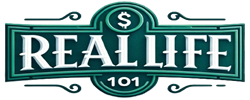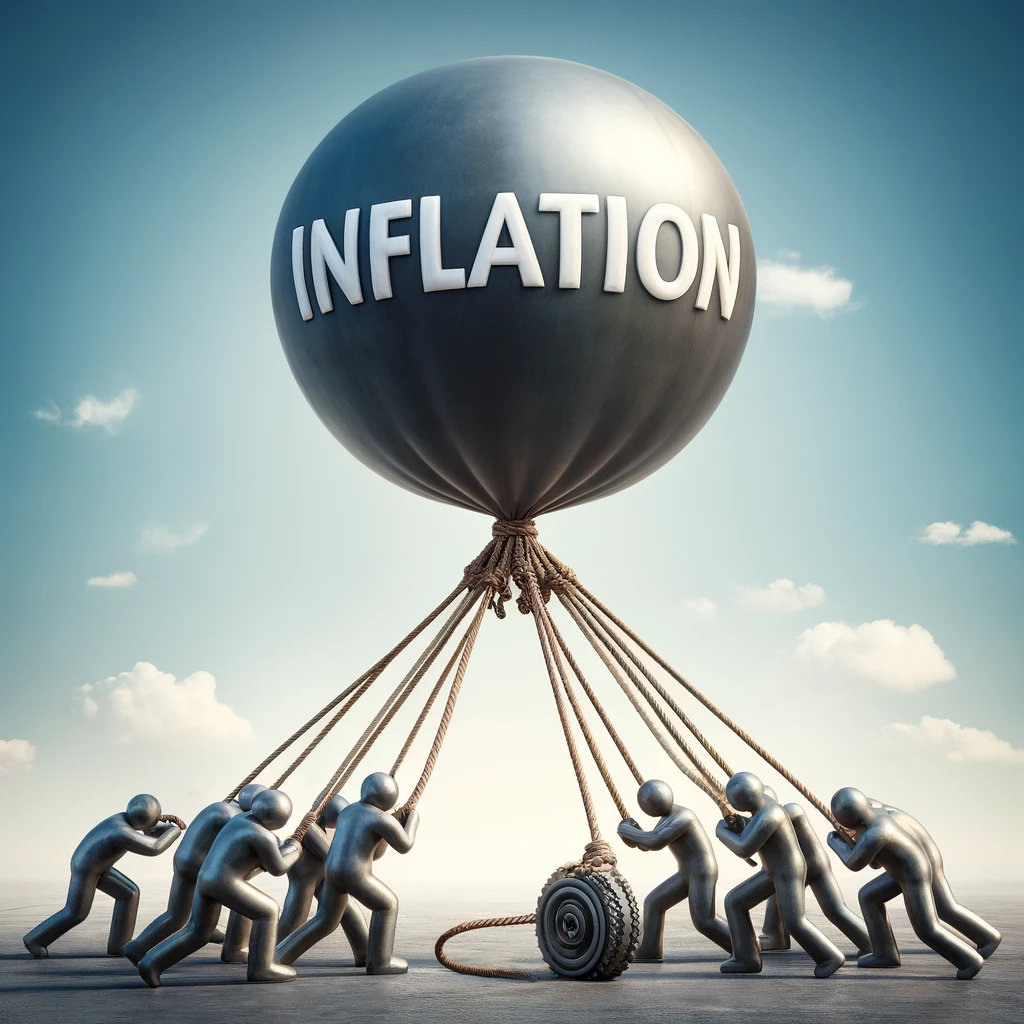Introduction
Inflation, the gradual increase in prices and erosion of purchasing power over time, affects not just the economy at large, but also the financial stability of every household. It can subtly diminish the value of your money, influencing everything from grocery bills to the cost of housing. Understanding how to counteract the impact of inflation is crucial for maintaining, if not enhancing, your personal financial health. By equipping yourself with the knowledge and strategies necessary to navigate these economic shifts, you can protect your savings, optimize your expenditures, and ensure a financially stable future despite the ever-changing economic landscape. This guide will explore practical ways to adjust your financial planning and investment strategies to effectively mitigate the impacts of inflation.
Understanding Inflation and Its Effects
What Is Inflation?
Inflation is defined as the rate at which the general level of prices for goods and services rises, leading to a fall in the purchasing value of money. It is measured as an annual percentage increase. As inflation rises, every dollar you own buys a smaller percentage of a good or service. The most common causes of inflation include an increase in production costs, such as raw materials and wages, and demand-pull inflation, where the demand for goods exceeds supply. Other factors can include changes in national debt, current events affecting economic confidence, and monetary policies set by the government or central banks.
How Does Inflation Affect Your Personal Finances?
The direct impact of inflation on your personal finances manifests as a decrease in your purchasing power. This means that the money you save today will be worth less tomorrow because it will not buy as much in the future. For example, if the rate of inflation is 3% annually, the price of a $100 item today will increase to about $103 next year, which continuously compounds over time. This erosion of purchasing power affects everything from your grocery bills to utility costs, rent, and other necessities, making it more challenging to maintain your standard of living without adjustments in your income or savings strategies. For savers, inflation can eat away at the real returns of money kept in low-interest accounts, making it imperative to seek investment options that outpace inflation to preserve capital.
Strategies to Protect Your Finances Against Inflation
Adjusting Your Budget
In times of rising inflation, revising your budget is crucial to maintain financial stability. Start by reviewing your current spending and identify any areas where expenses have increased due to inflation. Prioritize necessities such as housing, groceries, and healthcare, and consider where discretionary spending can be reduced. This might mean cutting back on dining out, subscriptions, or luxury items that have become more expensive. Additionally, recalibrating your budget categories may involve allocating more funds to savings or areas of your budget that are impacted more significantly by inflation, like utility bills which can fluctuate with changes in energy prices.
The importance of maintaining an emergency fund during inflationary periods cannot be overstated. With prices increasing, the amount needed for unexpected expenses (like medical bills or urgent home repairs) will also rise. Therefore, it’s wise to boost your emergency fund to ensure it covers several months’ worth of expenses, providing a buffer that can help you avoid dipping into long-term savings or incurring debt during financial emergencies.
Smart Saving Tips During High Inflation
During periods of high inflation, traditional low-interest savings accounts may not suffice as they often fail to keep pace with the rate of inflation. Instead, consider high-interest savings accounts that offer better annual percentage yields (APY) to help mitigate the effects of inflation. Online banks, credit unions, and high-yield accounts are typically the best venues for higher interest rates that can at least keep pace with or exceed inflation rates.
Moreover, it’s beneficial to regularly review and adjust your savings goals. As the cost of living increases, the future value of your savings might not hold as much power. Regularly updating your financial goals ensures that your saving strategies are realistic and reflective of current economic conditions. For example, if you’re saving for a down payment on a house, you may need to increase your target amount to account for the rising costs in the real estate market driven by inflation. This proactive approach not only keeps you aligned with your financial objectives but also encourages active management of your funds to optimize your financial health against the backdrop of an inflationary economy.
Investment Strategies to Counteract Inflation
Inflation-Proof Investments
Investing in assets that typically maintain or increase in value during inflationary periods can be a strategic move to protect your finances. Real assets, such as real estate and commodities, are often considered inflation-proof investments. Real estate often appreciates in value over time and may generate rental income that could increase with inflation, providing a double layer of protection. Commodities like gold, silver, and oil have historically been hedges against inflation. Their prices usually rise when inflation accelerates because they are priced in currency. As the value of currency falls, it often takes more money to purchase commodities, driving up their prices.
Another robust option for safeguarding your investments against inflation is Treasury Inflation-Protected Securities (TIPS). TIPS are government-issued bonds specifically designed to protect investors from inflation. These bonds adjust their principal value according to changes in the Consumer Price Index (CPI). As inflation rises, the principal increases, and investors receive interest payments based on the adjusted principal. Thus, TIPS provide a direct and explicit hedge against inflation.
Diversifying Your Investment Portfolio
Diversification is a key strategy to manage risk, particularly during inflationary times when the market can be volatile. By spreading investments across various asset classes, including stocks, bonds, real estate, and commodities, you can reduce the risk of significant losses. Stocks, for instance, often outpace inflation over the long term, although they may experience short-term volatility. Bonds typically have lower returns during high inflation but can provide stability and income.
Incorporating a mix of asset classes in your portfolio helps ensure that a portion of your investments can benefit from inflationary conditions while others may provide income or stability. For example, while commodities and real estate can be effective during high inflation, holding some bonds or cash can be beneficial for meeting short-term financial needs without having to sell other investments at an inopportune time.
A diversified investment strategy can be tailored to individual risk tolerance, financial goals, and the economic climate. It’s often advisable to consult with a financial advisor to create a portfolio that aligns with your long-term financial objectives and current market conditions. This strategic approach not only helps in managing the impacts of inflation but also positions your portfolio for potential growth across various economic scenarios.
Everyday Habits to Minimize the Effects of Inflation
Shopping and Spending
During times of high inflation, adopting smarter shopping and spending habits can make a significant difference in your financial health. One effective strategy is to prioritize needs over wants, focusing your spending on essential items and cutting back on non-essential luxuries. Look for sales, use coupons, and consider buying in bulk items that you use regularly and that have long shelf lives. Comparing prices online before making purchases can also ensure you get the best deal available.
Another beneficial approach is embracing a minimalist lifestyle, which involves simplifying your possessions and focusing on quality over quantity. This doesn’t just reduce immediate spending; it also decreases long-term costs associated with maintaining, storing, and replacing items. By purchasing fewer, higher-quality products, you not only save money but also contribute to a more sustainable living standard that can be economically advantageous in an inflationary environment.
Energy Efficiency and Home Improvements
Reducing home energy use is another practical way to counteract the financial impact of inflation. Simple changes like switching to LED lighting, sealing drafts around doors and windows, and using programmable thermostats can significantly reduce your monthly utility bills. Investing in more energy-efficient appliances may have a higher upfront cost but typically pays off in the long run through reduced energy consumption.
Moreover, making strategic home improvements can add value to your property while enhancing its energy efficiency. Installing new insulation, upgrading to energy-efficient windows, and considering solar panels are examples of improvements that not only make your home more comfortable and eco-friendly but also reduce dependence on increasingly expensive traditional energy sources. These improvements can be particularly beneficial in managing costs as energy prices fluctuate during inflationary periods.
Implementing these everyday habits can serve as effective defenses against the erosive effects of inflation, helping you maintain a stable and sustainable financial lifestyle. By focusing on efficient spending and investing in home efficiencies, you can create a buffer that mitigates the impact of rising prices on your overall budget.
Planning for the Future in an Inflationary Environment
Long-term Financial Planning
Adjusting your long-term financial plans in response to inflation is essential to preserving your financial future. This includes reassessing your retirement planning to ensure that your savings and investment strategies are robust enough to withstand the effects of inflation over time. For instance, increasing your retirement contributions to offset the diminished purchasing power of future dollars can be a prudent strategy. It’s also wise to consider diversifying retirement investments to include assets that traditionally hedge against inflation, such as real estate, commodities, and inflation-protected securities.
Consulting with a financial advisor can play a critical role in this process. A professional can provide personalized advice based on your financial situation, helping you adjust your financial plan to better tackle inflation. They can assist in recalibrating your investment portfolio to include a mix of assets that are likely to perform well during inflationary periods, thus safeguarding your retirement funds and other long-term financial goals.
Keeping Informed About Economic Trends
Staying informed about economic trends and understanding how they might impact inflation is crucial. Regularly updating yourself with economic predictions can help you make more informed decisions about saving, investing, and spending. This proactive approach allows you to anticipate changes rather than react to them, which can be crucial in maintaining financial stability.
There are several tools and resources available to help you monitor inflation rates and other economic indicators. Government and financial institutions often publish reports and forecasts that can be valuable resources. Websites like the Bureau of Economic Analysis (BEA) and the Federal Reserve offer updates on economic conditions, including inflation. Additionally, financial news websites, economic research blogs, and financial podcasts are excellent sources for timely and detailed economic analysis.
By incorporating these strategies into your financial planning, you can create a more resilient financial blueprint that considers the potential ups and downs of an inflationary economy. This proactive planning ensures you are better prepared to handle future economic shifts, securing your financial well-being regardless of the economic climate.
Conclusion
In conclusion, adapting to the impacts of inflation is essential for maintaining financial health in an ever-changing economic landscape. By understanding inflation and implementing strategic approaches in budgeting, saving, investing, and everyday spending, you can significantly mitigate its adverse effects. It’s crucial to be proactive in managing your finances, staying informed about economic trends, and consulting with financial experts to tailor your strategies to your personal needs. Don’t wait to feel the pinch of rising prices; start implementing these strategies today to protect and potentially enhance your financial future. Taking action now will not only help you counteract current inflationary pressures but also prepare you for any economic uncertainties ahead.



